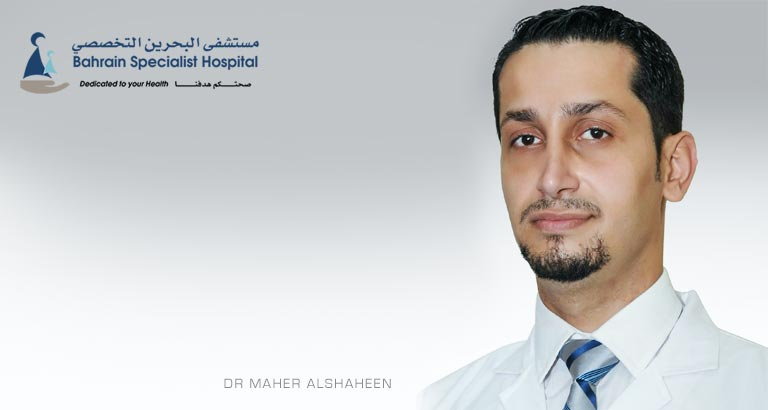
Dr Maher Alshaheen, endocrine and diabetes specialist, highlights common thyroid gland diseases and problems to watch for.
The thyroid is a gland that sits low in the neck on the front of the trachea. It secretes several hormones that act throughout the body, influencing metabolism, growth and development, and body temperature.
The thyroid gland uses iodine from food to make two hormones T3 and T4, these act throughout the body through receptors, thyroid hormones secretion is regulated by the pituitary and hypothalamus in the brain
It is possible that symptoms will develop when a defect occurs in the previous three levels.
Women are five to eight times more likely than men to have thyroid problems and incidence risk increases with age. Sometimes thyroid disorders are congenital, genetic factors have important role of thyroid disease.
Thyroid diseases are caused by increased or reduced hormone secretion or reduction, viral or bacterial infection, autoimmune disorders, benign or malignant tumors. Sometimes the volume increases without functional disorders.
Symptoms of thyroid hormone disorders:
Weight gain or loss with a healthy appetite, pain and swollen thyroid, lymph nodes in neck, hoarseness or deep voice, rapid heart rate (tachycardia) or slow heart rate (bradycardia), shortness of breath, high blood pressure, headache, memory loss, amnesia, hearing lack, weakness, exercise intolerance, cold intolerance, heat intolerance, muscle pain, dry skin, brittle nails, hair loss, excessive sweating, chronic constipation, diarrhoea, low libido, irregular menstrual cycle.
In children, thyroid disorders may cause global developmental delay, short stature, learning difficulty, anxiety, agitation, muscle laxity, premature puberty and delayed puberty.
Long term complication of thyroid disorders:
Untreated thyroid disease causes severe complications such as heart attack, heart failure, coma, recurrent miscarriage, recurrent colitis and bowel obstruction.
Usually, thyroid disorders are diagnosed by thyroid hormone test, thyroid ultrasound, neck CT scan and sometimes a biopsy if necessary.
Thyroid disorder treatments include: thyroxin, antithyroid medications, removal of the thyroid gland by surgery, ablation of thyroid by radioactive iodine therapy. These treatments are effective, and have a few of side effects.
People who are more susceptible to thyroid disease:
The hospital recommends routine screening for thyroid disease if a patient has familial history of thyroid disorders, had a past thyroid disease which was treated, diabetic patients, malabsorption patients, those with vitiligo, Addison's disease, Down syndrome, Turner syndrome and patients who are treated with Amiodarone (antiarrhythmic medication).
Call 17 812-000 or email [email protected]



